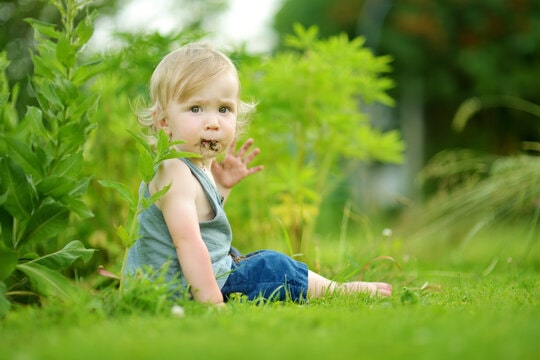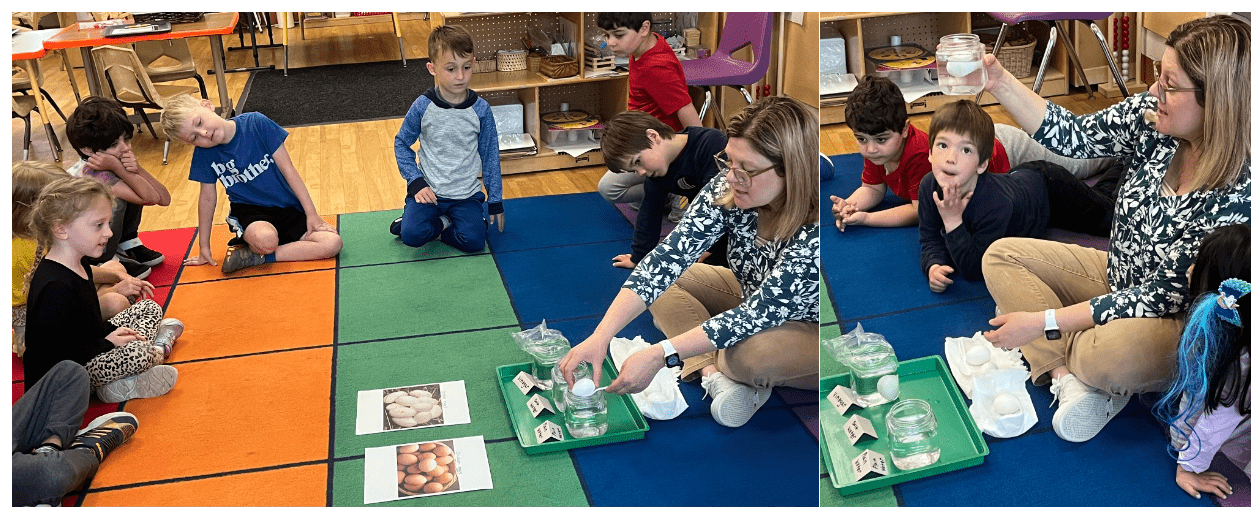May 2025 Director's Corner:
Exploring Science
To say “exploring science” is almost redundant in that science essentially IS exploration. According to Understanding Science 101, “the way individual humans learn (especially as children) bears a lot of similarity to the progress of science: both children and scientists make observations, consider evidence, test ideas, and hold on to the ideas that work.” They also advocate viewing science as a process that is an exciting, useful, and ongoing global human endeavor because what we learn as we explore the amazing world in which we live raises new questions for investigation. For young children, we start with exploring the science of everyday experience, including our own bodies, our food, our clothing, our pets, etc. Remember that we start with “I notice ___, I wonder ___, I think ___, and (after trying something) I learned ___”. Babies explore everything with their mouths because that’s where they have the strongest sensations and best motor control. So, when we introduce babies to bubbles or paint or chalk, their first exploration strategy is to put each one in their mouth. Similarly, snow, leaves, grass, dirt, and rocks from outdoor explorations go straight to the mouth. Gradually, babies begin to explore other options as we directly tell them that those things are not for eating, model other interesting activities, and allow them to explore, even when it means a lot of mess.
Babies explore everything with their mouths because that’s where they have the strongest sensations and best motor control. So, when we introduce babies to bubbles or paint or chalk, their first exploration strategy is to put each one in their mouth. Similarly, snow, leaves, grass, dirt, and rocks from outdoor explorations go straight to the mouth. Gradually, babies begin to explore other options as we directly tell them that those things are not for eating, model other interesting activities, and allow them to explore, even when it means a lot of mess.
For preschoolers and kindergartners who have developed more self-regulation, better motor skills, and much better receptive and expressive language, we can begin to deepen the explorations with discussions of science concepts and more purposeful experimentation. For example, the kindergartners have been exploring eggs and recently tested whether eggs sink or float. They tested both regular and hard-boiled eggs in fresh versus salt water. Mrs. Sweet invited them to use what they know to make predictions and then hypothesize explanations for the observations. Sometimes, she offered scientific principles, such as that both types of eggs float in salt water but sink in fresh water because the salt molecules add density to the water, which makes it denser than either type of egg. I wonder what happens with sugar water? Or with different types of objects?
Similarly for the preschoolers, a variety of opportunities for safely exploring their senses this spring have fostered new interests related to their bodies. The educators support this learning in many ways, ranging from simply acknowledging progress, to modeling techniques, to explaining principles. Throughout the process, explorations also strengthen children’s 1) confidence and capability for independent investigation, 2) ability to cooperate and negotiate with peers, 3) effectiveness of communicating their ideas, 4) comfort with multiple attempts and handling challenges, 5) safe self-regulation of motor skills, and 6) creative expressions through art and music.
Through my Director’s Corner series this year, I’ve invited you to consider the question, “Why Explore?” Perhaps I’ve convinced you that there are vast developmental benefits for building important skills in all domains. More than that, explorations foster a positive and proactive approach to learning. Children begin to view themselves as capable and critical thinkers whose discoveries are meaningful to themselves and their communities. Let’s continue partnering to support their growth. Best wishes for broad and deep learning as you encourage exploration adventures with your children this summer!





